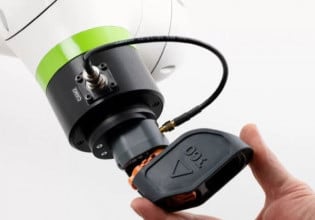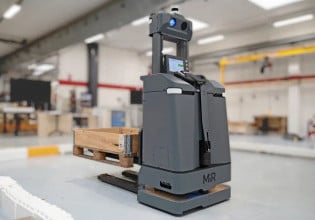Interface Details:
Modbus RTU via RS232, Serial to USB Converter
Sartorius Biostat RM (PLC Controlled Device, Vendor non-standard Pinout) to Windows 10 Laptop
Utilizing Chipkin CASModbusScanner Software to Test
Issue - While the Device does respond to a Poll, I have only once gotten what seemed to be a complete response (trying to read/poll all holding registers), which appear to be offset of 7000, length of 53. Most of the time I get exception codes (-2) Message too Short, (-4) Invalid Function Code and (-8) Response Unknown.
Currently only using (3) wires - TX, RX, and Ground (note Device has both a "Signal Ground" as well as a "Field Ground"; but utilizing Signal Ground does not produce any response from device (poll timeout). Adding additional wires to CTS/RTS and/or DTR/DSR have not provided any additional benefit (have tried most all combinations of crossed and straight through, as well as several combinations of loopbacks to defeat handshaking - no luck).
Chipkin CasModbusScanner Software is a free download (not promoting it, but it is what I am using to test).
Looking for any suggestions/advice on things to try or if I am missing something obvious...it should not be this difficult.
Modbus RTU via RS232, Serial to USB Converter
Sartorius Biostat RM (PLC Controlled Device, Vendor non-standard Pinout) to Windows 10 Laptop
Utilizing Chipkin CASModbusScanner Software to Test
Issue - While the Device does respond to a Poll, I have only once gotten what seemed to be a complete response (trying to read/poll all holding registers), which appear to be offset of 7000, length of 53. Most of the time I get exception codes (-2) Message too Short, (-4) Invalid Function Code and (-8) Response Unknown.
Currently only using (3) wires - TX, RX, and Ground (note Device has both a "Signal Ground" as well as a "Field Ground"; but utilizing Signal Ground does not produce any response from device (poll timeout). Adding additional wires to CTS/RTS and/or DTR/DSR have not provided any additional benefit (have tried most all combinations of crossed and straight through, as well as several combinations of loopbacks to defeat handshaking - no luck).
Chipkin CasModbusScanner Software is a free download (not promoting it, but it is what I am using to test).
Looking for any suggestions/advice on things to try or if I am missing something obvious...it should not be this difficult.
Attachments
-
98.4 KB Views: 18
-
122.2 KB Views: 24
-
87 KB Views: 24
-
70.6 KB Views: 17
-
22.7 KB Views: 12
-
80.4 KB Views: 9
-
51.5 KB Views: 8
-
48 KB Views: 8
-
56.6 KB Views: 8


























